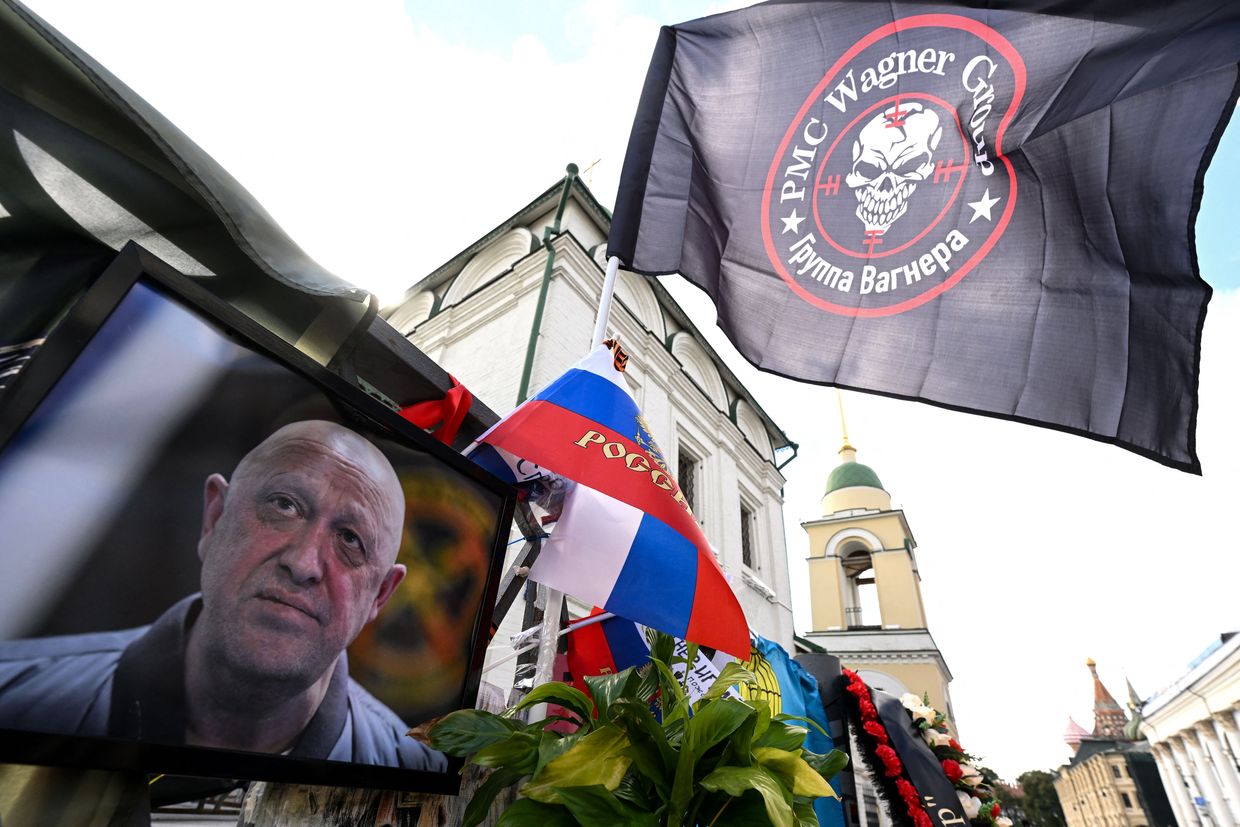Ukraine war latest: Defense Ministry reports gains in Donetsk, Zaporizhzhia oblasts; Putin demands sanctions relief to revive grain deal

Key development on Sept. 4:
- Defense Ministry reports gains in Donetsk, Zaporizhzhia oblasts
- Russia demands concessions to relaunch grain deal
- Romania denies Russian drone falls on its territory
- Russia attacks Ukraine with over 30 drones at night, damaging infrastructure
- Reznikov: Russia's war costs Ukraine $100 million daily
Ukraine’s military has made gains near Klishchiivka, some five kilometers from Bakhmut, and Novoprokopivka south of Robotyne, Deputy Defense Minister Hanna Maliar reported on Sept. 4.
Ukrainian forces have liberated three square kilometers around Bakhmut over the past week, Maliar said.
According to the official, Ukraine has regained 47 square kilometers of land in this area since the start of the summer counteroffensive.
Russia has carried out unsuccessful attempts to take back lost positions in Donetsk Oblast’s Klishchiivka, Kurdiumivka, and Ozarianivka, also trying to restrain the advance of Ukrainian troops toward occupied Bakhmut, Maliar said.
In eastern Ukraine, Russia also reportedly failed to advance in the areas of Novoiehorivka and Bilohorivka in Luhansk Oblast as well as Donetsk Oblast’s Sieverne, Avdiivka, Marinka, Krasnohorivka, and Novomykhailivka.
“In the Kupiansk direction (Kharkiv Oblast), our defense forces repel several enemy attacks per day and prevent the enemy from advancing,” the deputy minister added.
In the country’s south, Ukrainian forces continue the offensive operation toward Russian-occupied Melitipol, Zaporizhzhia Oblast, entrenching themselves in regained territory.
“The enemy in the south is suffering significant losses in personnel, weapons, and equipment, redeploying its units and troops and using reserves,” concludes Maliar’s Telegram report.
Russia demands concessions to relaunch grain deal
Russian President Vladimir Putin said Russia would only rejoin the Black Sea Grain Initiative once sanctions related to Russian grain and fertilizers for European markets are lifted.
Putin's comments came after talks with Turkish President Recep Tayyip Erdogan in Sochi on Sept. 4.
Turkish state-run news agency Anadolu reported earlier in the day that a key reason for Erdogan's visit was to negotiate the restoration of the deal, which Moscow unilaterally terminated in July.
Erdogan told the press in Sochi that he hopes a solution will be reached soon, and that a new package of proposals from the UN has led to "significant progress."
"Ukraine needs to soften its approach in order to take joint steps with Russia," he said, adding that Turkey was willing to host direct negotiations between the two countries.
Following the talks, Foreign Minister Dmytro Kuleba responded by saying that the initiative "must be restored," but not at the expense of accepting blackmail.
Moscow withdrew from the Black Sea grain deal on July 17, causing spikes in wheat prices and fears about food security worldwide.
The agreement previously allowed Ukraine to export its grain through its Black Sea ports amid the ongoing Russian full-scale invasion.
Turkey, positioning itself as a mediator between Ukraine and Russia, played an important role in brokering the grain deal in July 2022. Since the agreement's collapse, Ankara has been in contact with both Kyiv and Moscow, discussing the options for its restoration.
Romania denies Russian drone falls on its territory
Romania's Defense Ministry "firmly denied" that drones had fallen on Romanian territory during Russia's overnight attack against Odesa Oblast, situated on the border with Romania, saying it did not pose any direct military threats to the country.
Ukraine's Foreign Ministry spokesperson said on Sept. 4, citing the State Border Guard Service, that an unspecified number of drones had fallen and detonated in Romania during the attack.
Ukraine has visual evidence of Russian attack drones falling on Romanian territory, Foreign Minister Dmytro Kuleba said on Sep. 4.
"It's pointless to deny that something fell there," Kuleba said.
Russian forces reportedly launched 32 kamikaze drones at Ukraine overnight, 17 of which were shot down over Odesa Oblast.
According to the Foreign Ministry's spokesman Oleh Nikolenko, the attack targeted the area of the Izmail port across the Danube River from Romania. Bucharest, however, said that Russia hit the port of Reni, around 60 kilometers to the west.
The Romanian authorities are "now studying all aspects of what happened," Kuleba said, adding that the Ukrainian authorities can provide proof that the drones fell in that location.
If confirmed, the drone falling in Romania would not be the first time reports have emerged that a Russian weapon has landed in a NATO member state.
In May, a missile found a month prior in Bydgoszcz, Poland, was likely a Russian Kh-55 cruise missile launched from Belarus during a mass attack against Ukraine, according to Polish media.
Russia attacks Ukraine with over 30 drones at night, damaging infrastructure
Russian forces launched 32 kamikaze drones at Odesa and Dnipropetrovsk oblasts overnight on Sept. 4, damaging industrial facilities and infrastructure.
Ukraine’s military reported shooting down 23 Iranian-made Shahed-136/131 drones, according to the Air Force.
The drones were launched from Cape Chauda in occupied Crimea and Russia’s port town of Primorsko-Akhtarsk on the Azov Sea coast, the Air Force said.
Ukrainian air defenses destroyed 17 out of the 23 drones launched at Odesa Oblast, but there were hits in the region, regional governor Oleh Kiper reported.
In several settlements of the Izmail district, the attack damaged warehouses, production facilities, agricultural machinery, and industrial equipment, according to Kiper.
Drone debris fell on civilian sites, causing fires. No casualties were reported.
Six drones were downed over Dnipropetrovsk Oblast, where an infrastructure facility was hit, Governor Serhii Lysak said on Telegram.
Since the collapse of the Black Sea Grain Initiative in mid-July, Russia has repeatedly targeted Ukraine's agricultural infrastructure, ports, and grain stockpiles.
Ukraine's ports located across the Danube River from Romania serve as the main alternative routes to shipping grain.
Reznikov: Russia's war costs Ukraine $100 million daily
Ukraine spends around $100 million in state funds daily to defend itself against Russia’s full-scale war, soon-to-be former Defense Minister Oleksii Reznikov told state-run media outlet Ukrinform.
According to Reznikov, supplies from volunteer organizations amount to only 3% of all the equipment that has reached the front lines since Feb. 24, 2022.
“Therefore, it is unfair to claim…. that everything is done by volunteers,” the official said when asked about the allegedly small amount of drones provided to soldiers by the state.
“Actually, this is done by working citizens of Ukraine because they pay taxes to the budget, and from this budget, the money also goes to the army.”
In the interview, published on Sept. 4, Reznikov said he couldn’t reveal how many contracts the Defense Ministry had concluded with Ukrainian drone producers.
What can be publicly announced is that 30 new models of Ukrainian drones have been recently approved for operation, he told Ukrinform.
“The level of their production will depend on the manufacturers themselves. Everything they can produce will be ours. We will buy everything from them with state funds.”
Earlier the same day, Reznikov submitted his resignation to the Ukrainian parliament and President Volodymyr Zelensky. Lawmaker Yaroslav Zhelezniak said that the parliament’s Defense Committee supported Reznikov’s resignation.
On Sept. 3, Zelensky publicly announced his decision to dismiss the defense minister and replace him with 41-year-old Rustem Umerov, the chairman of the State Property Fund of Ukraine.
Reznikov's dismissal followed several scandals within the Defense Ministry brought to light by Ukrainian media, particularly involving the procurement of equipment and supplies for Ukrainian soldiers.














